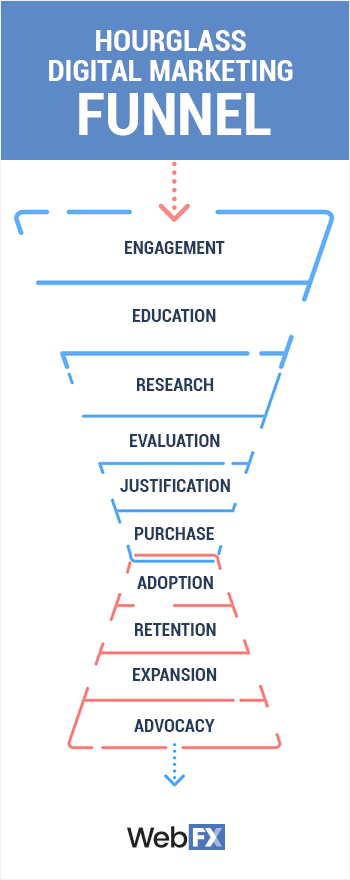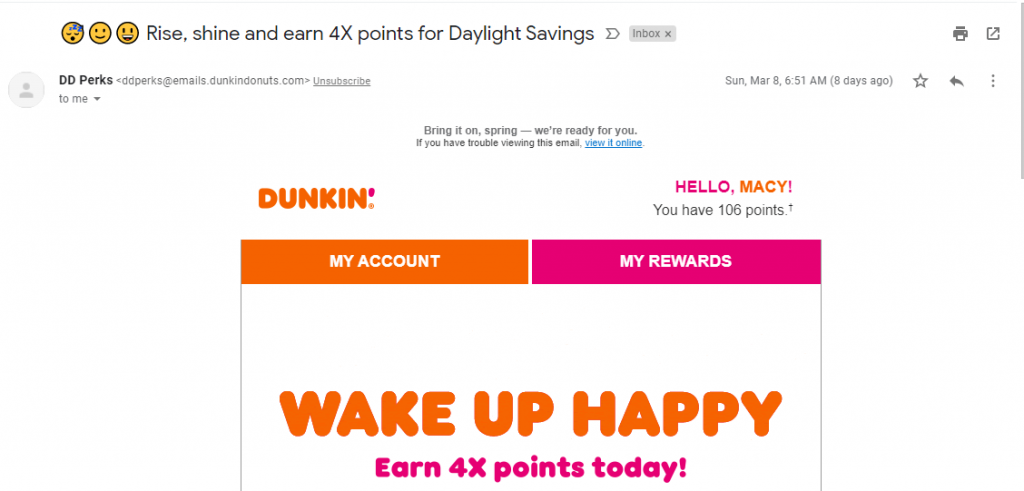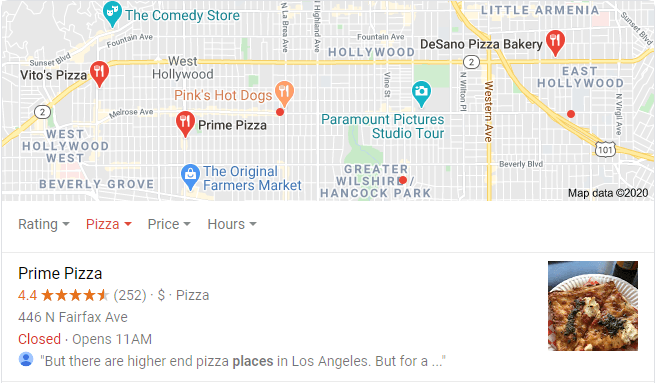How to Plan a Marketing Budget as an SMB: 6 Simple Steps
You finally decided to take the leap and invest in digital marketing services. As you sit down at your computer and start researching strategies, you stumble across some prices, and it causes you to pause. You say to yourself, “Wait a minute, can we afford this?”
Without a marketing budget plan in place, you have no way of knowing.
But luckily, we’ve got all the information you need to know how to plan a marketing budget! Keep reading to learn more and subscribe to Revenue Weekly for the latest tips and tricks about marketing!
Table of Contents
- What is a marketing budget?
- Why have a marketing plan budget?
- How to plan a marketing budget
- How to determine a marketing budget based on your industry
What is a marketing budget?
A marketing budget documents how much your business plans to spend on marketing over a specific period, like a year, quarter, or month. When budgeting for marketing, companies may include paid ads, hiring costs, marketing tools, website maintenance expenses, and more.
Why do I need a marketing budget for my business?
If you’re wondering why you need a marketing budget for your business, check out these top three reasons:
1. It helps you stay on track financially
If you’re diving into developing a marketing strategy, you need a budget to help you stay on track financially.
When you create a marketing budget, you’ll be able to keep track of how much you spend on each strategy, if you’re overspending, and if you can spend more. If you skip creating a marketing budget, you’ll likely find yourself overspending, which can cause your business to fail.
2. It helps you allocate funds into the right places
A marketing budget plan will help you put your marketing funds in the right place.
When you know how much you can spend, you know how much you can put into each marketing strategy of interest. It allows you to determine which strategies work with your budget or if a digital marketing company’s packages fit within your budget.
3. It’s an investment in your business’s growth
When you think about investing in marketing methods, you may see marketing as just another cost for your business.
It’s important to note that marketing isn’t a cost — it’s an investment. Marketing is an investment in your business’s growth and development. By learning how to make a marketing budget, you’ll help your business get the most out of your investment.
How to plan a marketing budget that sets you up for success in 6 steps
Now that you know why a marketing budget is essential, it’s time to look at how to prepare a marketing budget and prioritize it.
Check out these six critical points you’ll want to establish to set up your marketing budget.
1. Establish your sales cycle

When you create your marketing budget breakdown, you want to establish your sales funnel. Your sales funnel is a critical component of your marketing budget because it determines where you’re going to spend your money.
Your sales funnel is the process your audience goes through to become a paying customer. A typical sales funnel will have four stages:
- Awareness: At this stage, your audience becomes aware that they have a problem and seek to find solutions.
- Consideration: At the consideration stage, your audience starts to look at the options available to them.
- Decision: When a lead reaches the decision stage, they start to narrow their focus on companies that provide the best solution or product for their needs.
- Action: Once a lead reaches the action stage, they choose your business and become a customer.
To the right, you can see an even more detailed version of the sales funnel!
Understanding your business’s sales funnel helps you see where you may need a digital marketing strategy to help you keep more people from falling out of the funnel.
For example, let’s say you notice that your business’s funnel has a ton of people at the consideration stage, but very few make it to the decision stage. While some drop-off is natural, you notice that the decline is more significant than what you’d expect.
As a result, you may find that you need to budget more money into strategies that will help get leads from the consideration stage to the decision stage. Strategies like video marketing, pay-per-click (PPC) ads and social media ads may help you push those leads down the funnel.
So, to help you understand how much you need to budget for marketing, you need to understand your sales cycle. Knowing your sales cycle will help you anticipate strategies you may need to invest in, which will help you budget for your marketing plan wisely.
2. Know your outside costs
If you want to know how to prepare a marketing budget, start by establishing your external costs. You need to know how much everything costs your company, so you know how much you can allocate for marketing.
So, what are outside costs you need to consider?
- Operational costs (creating products, shipping them)
- Costs for employing staff
- Costs for running your business (electricity, water)
- And more
You must consider these costs when creating your marketing budget plan.
Not only does it determine what services you can invest in, but it also helps you set a baseline for your return on investment (ROI).
So, for example, let’s say it costs your business $10 to produce your product. You sell your product for $50. So, when you’re choosing marketing methods for your business, you have an idea of how much you want to spend so you can still make a profit off your item.
This information will help guide you to strategies that allow you to get the best ROI for your business.
3. Determine your business’s goals
Every guide on how to create a marketing budget will say that you must establish your business’s goals — and it’s true! You need to know what you want to achieve, so you can set a budget that allows you to achieve those goals.
You can set goals that focus on:
- Earning more sales
- Increasing leads
- Earning more subscribers
- Increasing brand awareness
- And more
When you set your business’s goals, make sure they’re specific and smart. You don’t want to set a goal like “increase sales.” It won’t give you a precise target to work towards and achieve.
Instead, set a goal like “Increase sales by 20%.” This goal is easily measurable and gives your team something precise to achieve. It’ll also give you a concrete reference point when budgeting for marketing because you know how much you want to increase sales by versus just knowing that you want to increase sales.
If you want to know how to prepare a marketing budget properly, start by adding your overall business goals so you can invest in the right marketing methods to help you reach your goals.
4. Understand your market
You need to know where you fit in your market to build an effective marketing budget plan. When you understand how you stack up against your competition, you can better establish which strategies you need to use to compete with them.
You’ll want to do a competitor analysis to see how your competition performs online. You can even use competitor analysis tools to help you see where your competition currently succeeds online. It can help you determine which strategies you’ll need to budget to drive success.
You can use a competitor analysis tool like Mailcharts to analyze competitor email campaigns and get ideas for your own campaigns or Social Mention to monitor what people say about competitors on social.

5. Get an idea of what strategies you want to use
An essential component of preparing a marketing budget is choosing your strategies. You don’t need to be 100% sure about the strategies you want to use, but you should have an idea of which strategies seem to be the best fit for your business.
There are numerous digital marketing strategies you can use, including:
- Search engine optimization (SEO): SEO is the process of boosting your website’s ranking in the search results to help drive more relevant, organic traffic to your page.
- PPC advertising: PPC ads are paid advertisements that appear at the top of the search results. These ads allow you to reach more leads that are ready to convert.

- Social media marketing: Social media marketing enables you to connect with your audience one-on-one and deliver informative content to them. This strategy allows you to build a relationship with leads and nurture them into customers.
- Social media advertising: If you invest in social media advertising, you’ll focus on creating compelling ad copy targeted at specific leads. These ads appear seamlessly in their newsfeed, allowing you to build brand recognition and earn more leads.

- Email marketing: Email marketing enables you to nurture leads towards conversion by sending tailored content that fits their interests. You can send promotional emails, exclusive deals, abandoned cart reminders, and more.

- Content marketing: Content marketing enables you to drive more leads to your page by sharing valuable information with your audience. Whether it’s blog posts or videos, you can share your knowledge with your audience and establish yourself as an authority in your field.
- Local SEO: With local SEO, you optimize for local keywords and claim your Google My Business listing to help drive more local traffic to your business. Below, you can see an example of a GMB listing!

- And more!
You’ll want to have an idea of which strategies you want to use for your business when creating a marketing budget. When you know which strategies you want to invest in, you can determine how they will fit into your marketing budget plan. That brings us to our next critical component of how to plan a marketing budget.
6. Research strategy prices
Whether you’re going to run your campaigns on your own, hire a freelancer, or hire a digital marketing company, you need to know how much it costs.
Your marketing budget breakdown should focus on how much each strategy will cost your business.
First, you must determine who you want to handle your campaign:
- In-house: If you decide to stick to your in-house team, the cost will come in the form of salaries and materials you need to execute your campaigns. You may still need to hire outside help or invest in tools that enable you to manage your campaigns.
- Freelancers: Freelancers are people who can specialize in one type of strategy or dabble in a few of them. If you hire a freelancer, it’s typically an hourly cost, but it can sometimes be a per-project basis. The prices may be higher if the freelancer is more experienced or uses software, which they include in their rate.
- Digital marketing company: If you hire a digital marketing company, you’ll get everything you need, from tools to people. Unless you’re doing a one-off project, you’ll pay per month to keep a digital marketing company on retainer.
Typically, if you’re busy running your business, you’ll want to rely on a digital marketing company. It allows you to reap the benefits of having a marketing plan and someone to manage your budget, while you worry about other expenses for your business.
Once you know who’s running your campaign, you’ll want to look at how much strategies cost.
This task can be tricky if you’re looking to partner with a digital marketing company. Some companies may not publish their prices online. It makes it challenging for you to know how much strategies cost.
To help you get an idea, here’s a range for how much you should expect to pay for online marketing strategies from a digital marketing company:
- SEO: $500 – $20,000+ per month
- PPC: 5-20% of monthly ad spend
- Content marketing: $1000 – $20,000 per month
- Social media marketing: $250 – $10,000 per month
- Email marketing: $300 – $2500 per month
These prices will vary depending upon your business and what you need. But this range is about how much you can expect to pay if you partner with a digital marketing company.
By knowing these costs, you’ll know how to prepare a marketing budget better, so you can use the strategies that will drive the best results for your business.
How to determine a marketing budget based on your industry
If you’re still wondering how to determine a marketing budget, this data-backed breakdown for creating a marketing budget will help. You can learn how much your business should budget for its marketing plan by looking at your industry and its average marketing spend in the table below.
| Industry | Marketing Budget (% of Company Revenue) |
|---|---|
| Communications | 9.0% |
| Construction | 3.0% |
| Consulting | 7.5% |
| Consumer packaged goods | 9.1% |
| Consumer services | 18.9% |
| Education | 12.0% |
| Energy | 8.3% |
| Finance | 9.2% |
| Healthcare | 9.0% |
| Insurance | 9.2% |
| Manufacturing | 2.4% |
| Retail wholesale | 4.4% |
| Technology | 9.7% |
| Transportation | 8.5% |
Besides industry, your business can also look at its age and overall market.
For instance:
- Age: Businesses between one and five years old should invest 12% to 20% of revenue towards marketing, and businesses older than five years should invest 6% to 12% of revenue towards marketing
- Overall market: Business-to-business (B2B) companies should invest 7% to 8% of revenue towards marketing, while business-to-consumer (B2C) companies should invest 9% of revenue towards marketing
Remember, though, that every company is unique. Depending on your organization’s goals and overall business strategy, you may opt to create a marketing plan budget that is higher or lower than your industry’s average.
Start preparing your marketing budget plan today
If you’re ready to dive into creating your marketing budget plan, WebFX is here to help. With over 20 years of experience, we know how to prepare a marketing budget that works for your business’s unique needs.
We’ll help you choose strategies that work with your budget and help you drive results for your business. Contact us online or call us today at 888-601-5359 to speak with a strategist to learn more!